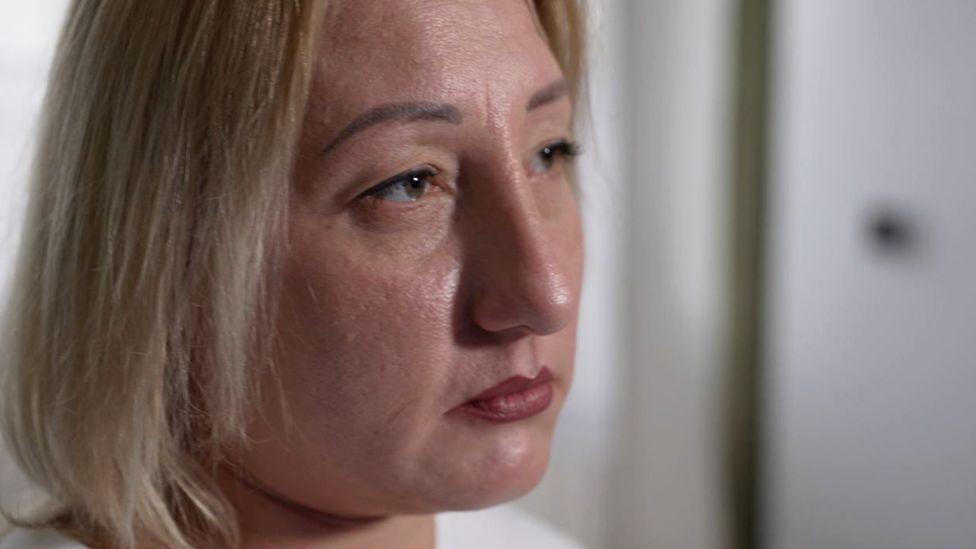'War will last as long as Russia does': Ukrainian talk of victory fades as Trump returns
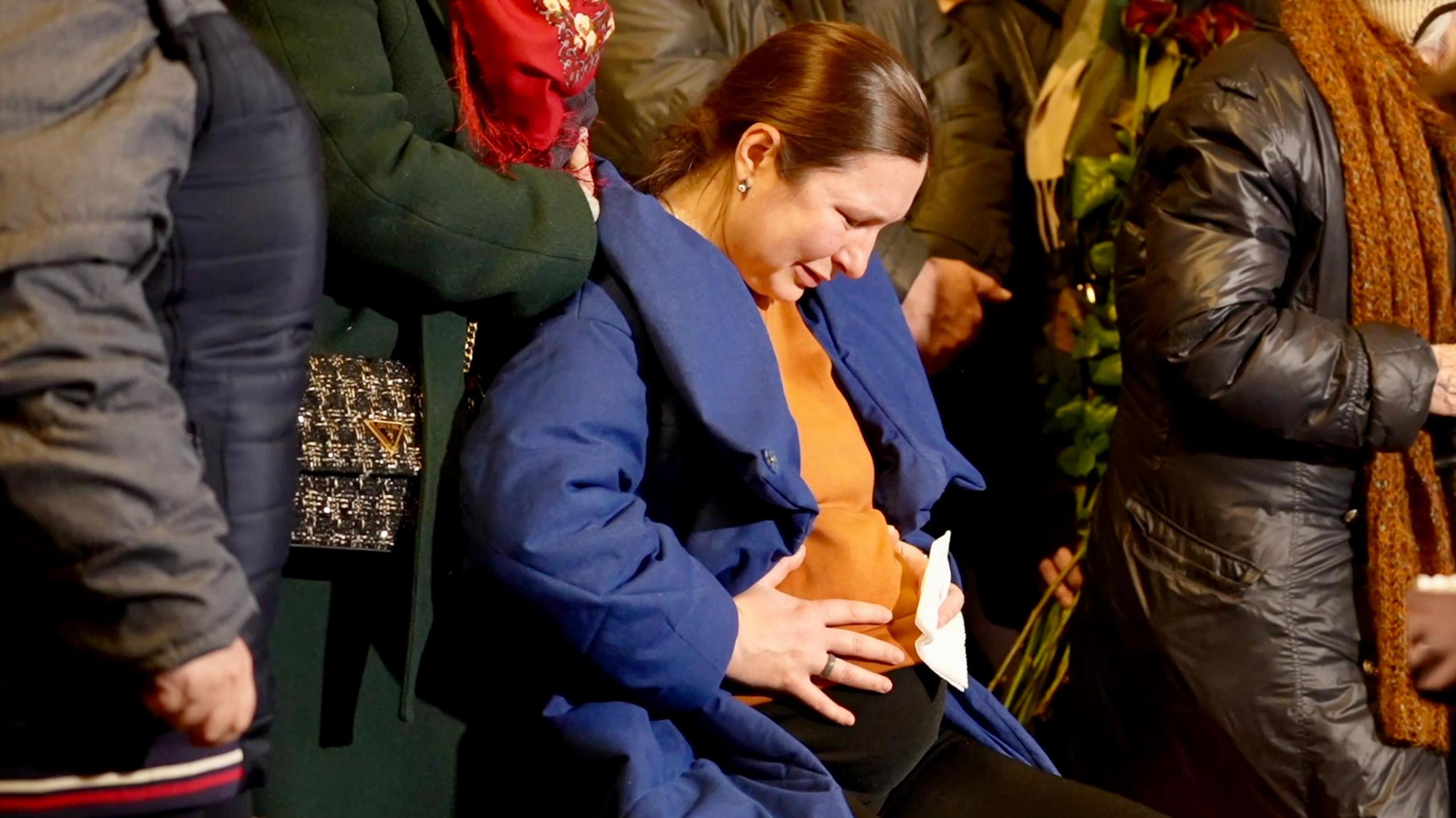
Anastasiia's husband, Andriy, will never get the chance to meet his baby daughter
- Published
Anastasiia Fedchenko, 36, wails in anguish – her agony echoing around the gilded walls of St Michael's Cathedral in Kyiv.
She sits with her hands resting on both sides of her stomach. She is heavily pregnant with her first child, a baby girl. Her husband Andriy Kusmenko is just inches away, in uniform - in an open coffin.
The marine commander was killed in action in eastern Ukraine on 4 January this year. He is now and forever 33. While Andriy fought in the war, Anastasiia wrote about it, as a journalist.
His brothers in arms file past, dropping red roses into his coffin. As funeral prayers come to an end, Anastasiia leans forward and gives "the love of her life" one last kiss.
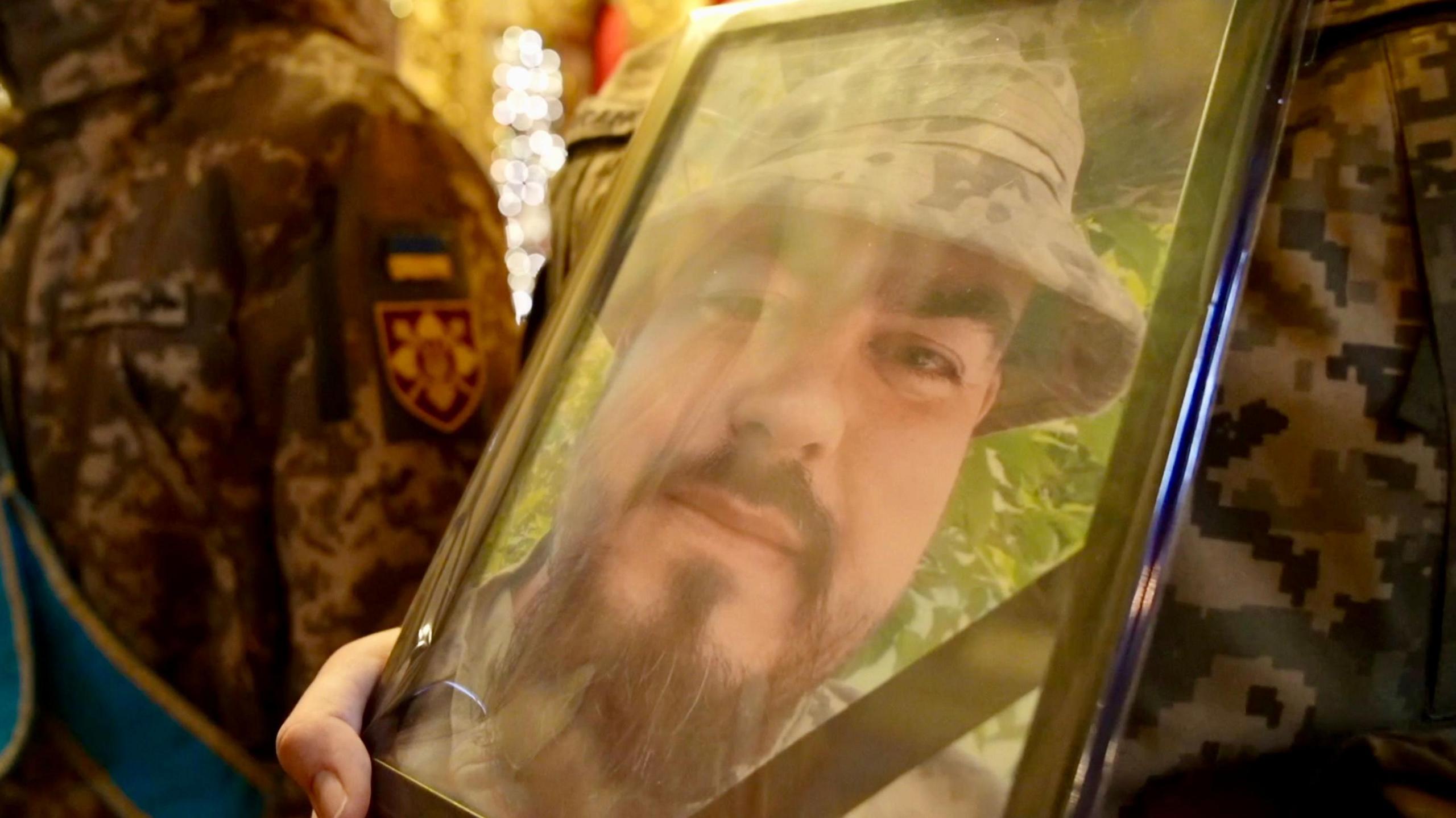
Andriy was killed in action on the front line at the start of the year
Outside the cathedral she pays tribute to her "most handsome husband" who died for his country.
"I am sorry my daughter will never see her father," she tells the BBC, "but she will know that he was a soldier, an officer, and that he did everything he could for Ukraine to exist for her and for other generations."
"This war will last as long as Russia does. I truly fear our children will inherit it from us and will have to go and fight."
Not according to Donald Trump, who famously claimed he could end the war in a day, and who returns to the White House next week. He is already pushing for peace talks between Ukraine and Russia.
That would dishonour the dead, according to Sgt Dmytro, call sign "Smile", who fought alongside Andriy and came to the cathedral to mourn him.
"Let the people in power decide, but I don't think the ones who fell would want them [Ukraine's leadership] to sit around the table," he says.
"After the funeral, we are heading back to work. We will fight for every Ukrainian who fell."
Plenty here believe – like Anastasiia and Dmytro - that far too many Ukrainians have been killed to try to do a deal with Russia. But public opinion is shifting, and others believe there is too much death and destruction not to do a deal.
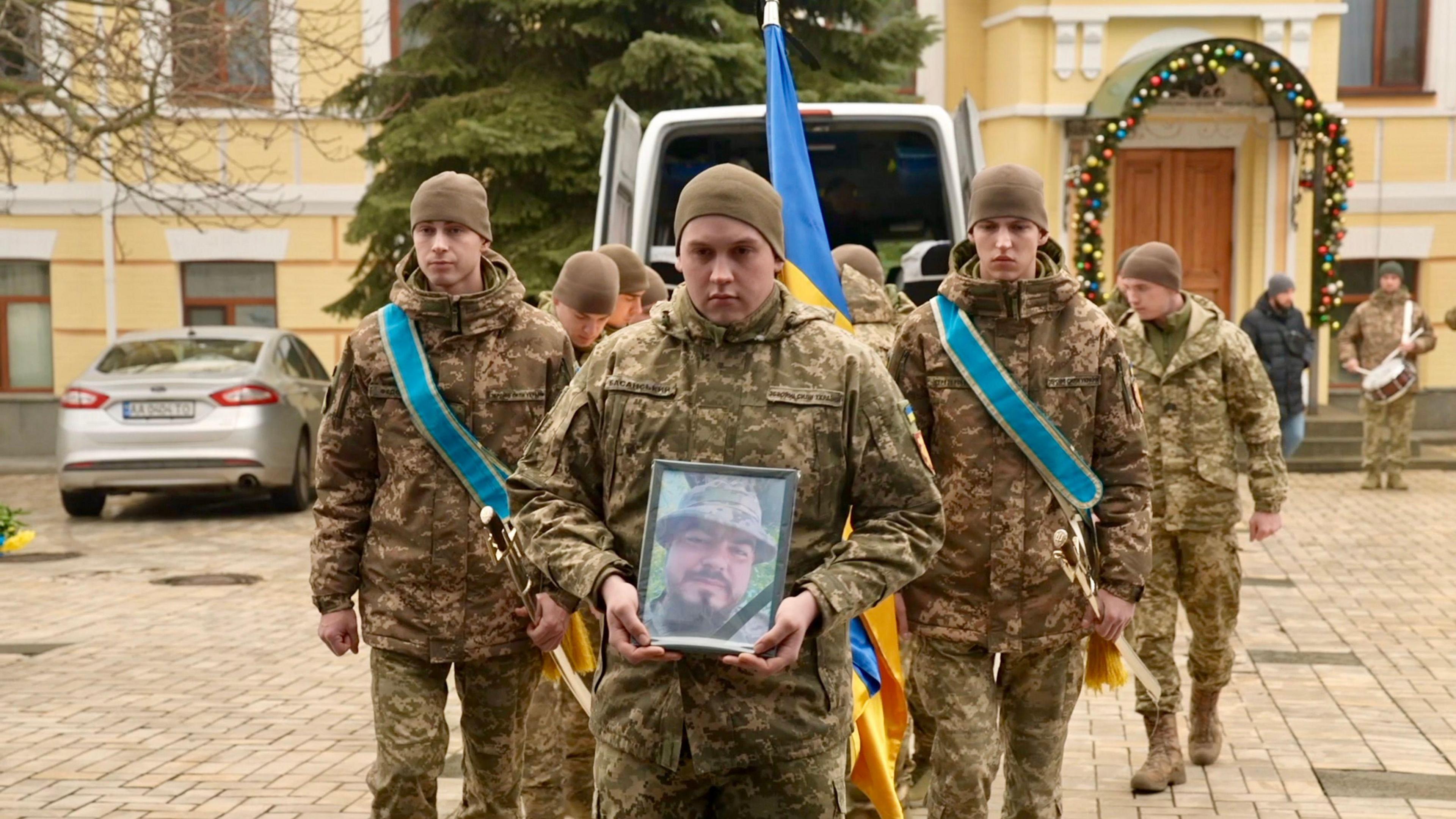
Andriy Kusmenko's fellow soldiers came to the cathedral to honour him
As Ukraine battles through its third winter of war, one word is now little spoken here – "victory".
In the early days of Russia's full-scale invasion in February 2022, we heard it everywhere. It was a rallying cry for a nation suddenly confronted by columns of enemy tanks. But the past is truly a foreign country – and one with more territory.
Moscow now controls almost one-fifth of its neighbour (including the Crimean Peninsula, captured in 2014) and says any peace talks must take that into account.
The Ukraine of 2025 is a place of cold, hard realities – where cities empty, graveyards fill, and plenty of soldiers desert their posts.
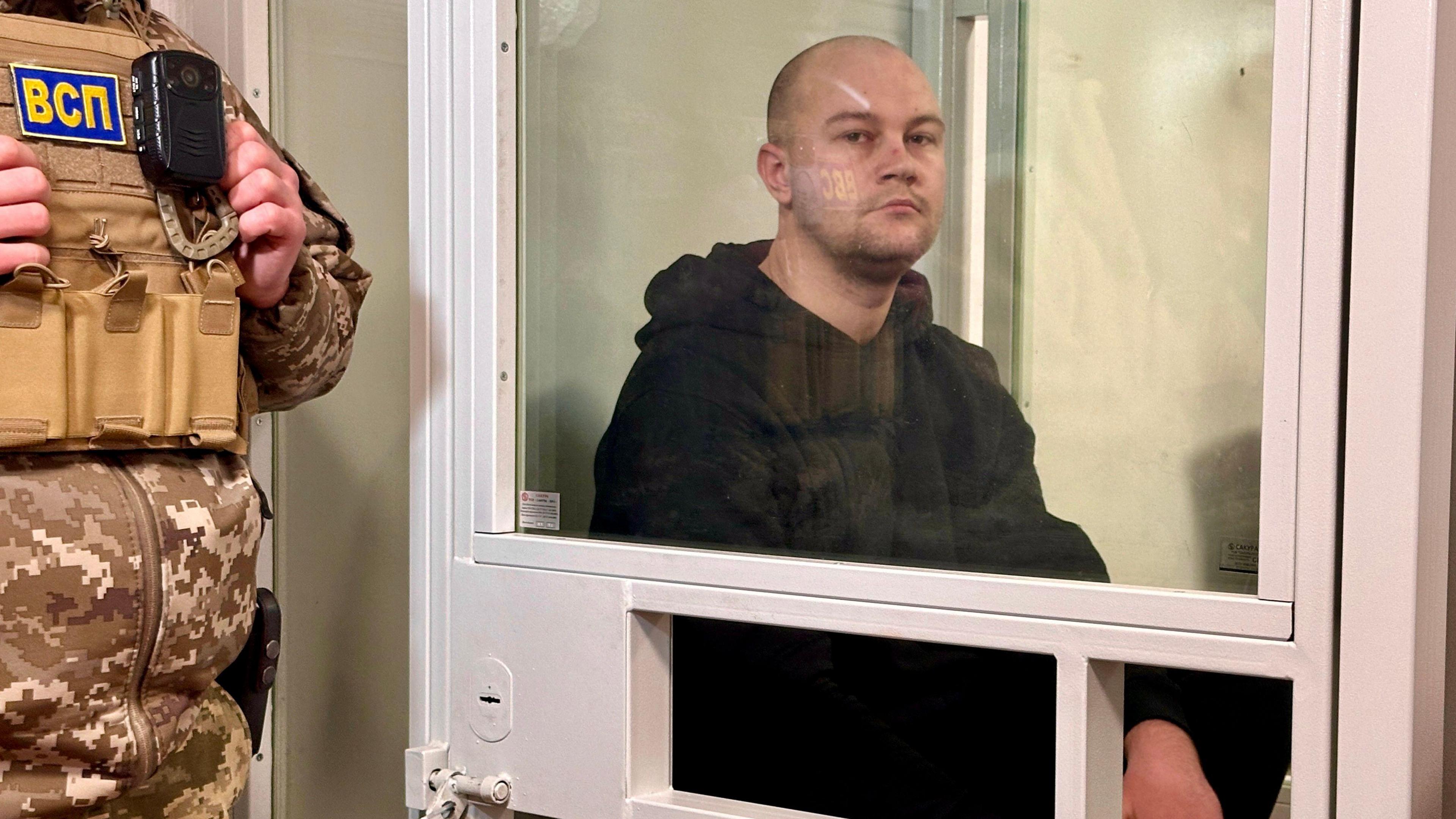
Up to 100,000 cases have been opened against soldiers, such as Serhiy Hnezdilov, who have deserted their units
Six hours drive from the capital, in the heart of Ukraine, a young soldier is in the dock.
Serhiy Hnezdilov, a burly 24-year-old, is locked in a glass cubicle in a packed courtroom in the city of Dnipro. He is on trial on charges of desertion, and is one of many.
Since 2022, around 100,000 cases have been opened against soldiers who left their units, according to data from Ukraine's General Prosecutor's office.
When Hnezdilov went absent without leave, he went public with demands for a clear time frame for ending military service. He says he is ready to fight but not without a plan for demobilisation. He has already served for five years, including two before Russia's full-scale invasion.
"We must continue to fight," he told me during a break in the hearing, "we have no other choice."
"But soldiers are not slaves. Everyone who has spent three years or more on the front line deserves the right to rest. The authorities have been promising for a very long time to set terms of service, but they have not done it."
In court he also complained of corruption among commanders, and of deadly incompetence.
After the brief procedural hearing, he was handcuffed for the journey back to prison. If convicted he faces up to 12 years in jail. "Help Ukraine," he told us, as he was led away.
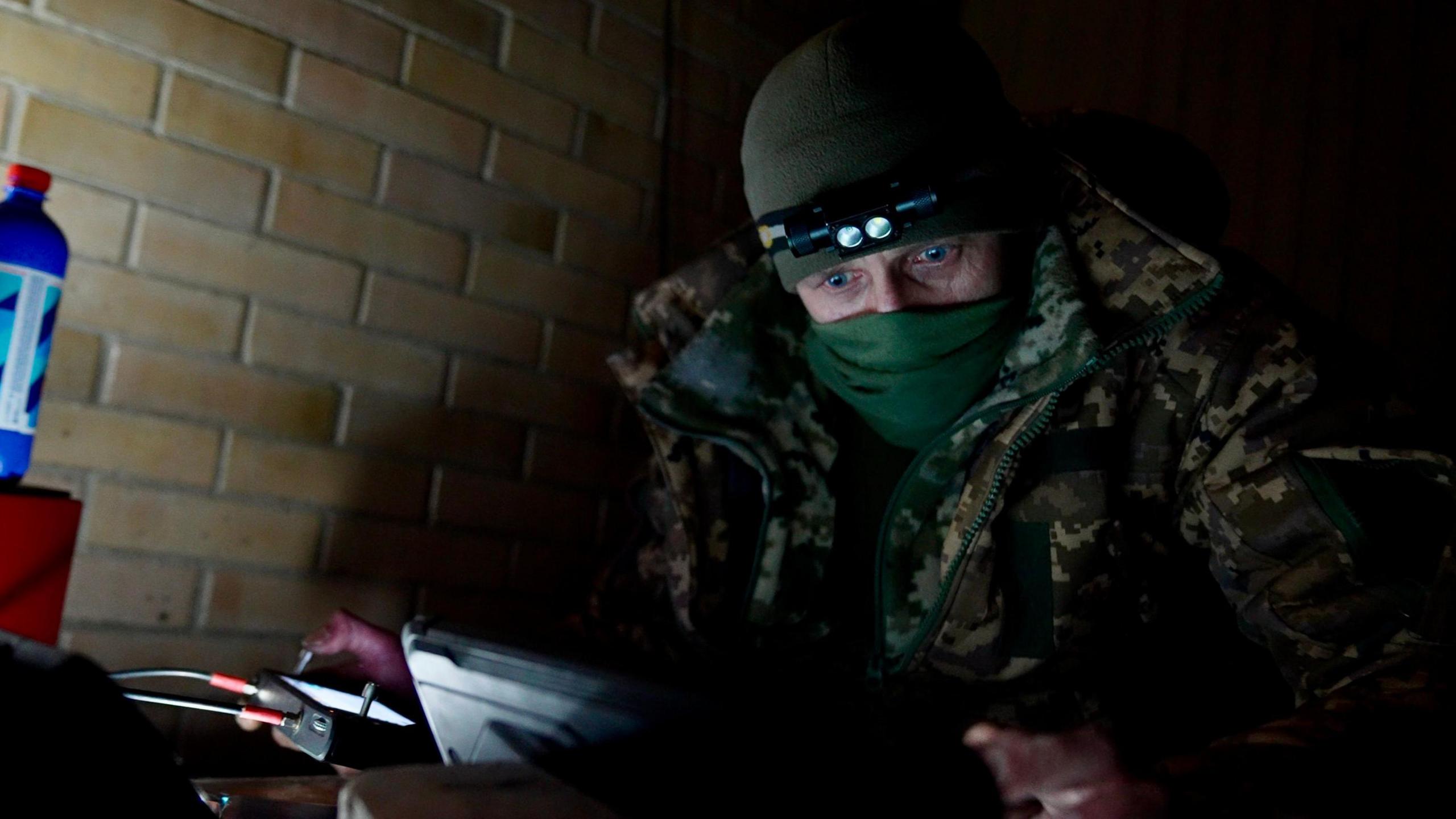
"I am tired... time off is rare," says Mykhailo, a drone unit commander
Many other Ukrainian soldiers are still straining every sinew on the front lines, trying to at least slow the Russian advance.
Mykhailo, 42, the chain-smoking commander of a drone unit, does battle every night fuelled by "Non-Stop" - a Ukrainian energy drink.
He is with the 68th "Jaeger" Brigade, fighting to hold on to the eastern front-line city of Pokrovsk – a key transportation hub. The Russians are closing in on two sides.
Mykhailo drives us to a Ukrainian position – a journey we can only risk after dark, and in an armoured car. The Russians too have eyes in the skies. Their drones are a constant threat. He is watchful, and weary.
"I went to the enlistment office in the first days," he tells us, "and I hoped everything would go quickly. Honestly, I am tired. Time off is rare [in his case a total of 40 days in three years]. The only thing that saves me is that I can video chat with my family."
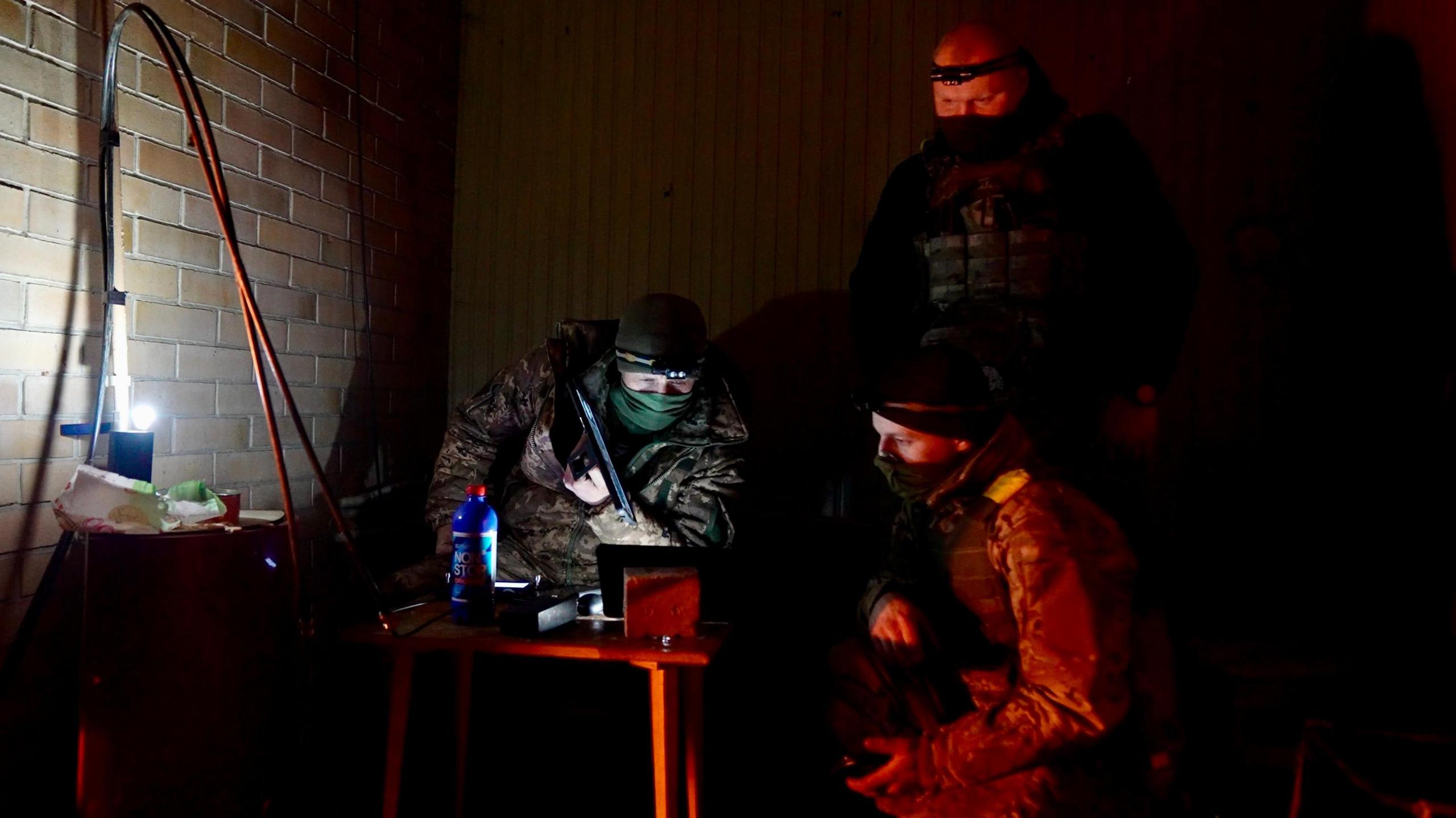
Mykhailo and his fellow soldiers at a pop-up drone position, trying to slow the Russian advance on the eastern city of Pokrovsk
We arrive at a disused house where Mykhailo and his men unload their equipment and set up a pop-up drone position. Screens are carried in, and cables connected.
Outside, troops erect an antenna taller than a two-story building. They work fast under torchlight – using red beams not white as these are harder to detect. Then they assemble bombs to arm their "vampire" – a supersized attack drone.
For the next few hours, we have front-row seats as Mykhailo - call sign "Admin" – pilots the drone, his eyes darting from screen to screen. First, he drops supplies to front-line Ukrainian troops and then drops an anti-tank mine on Russian forces underground. It falls slightly wide of its target.
He is up against high winds and Russian jamming. All the while he is on the look-out for incoming enemy drones.
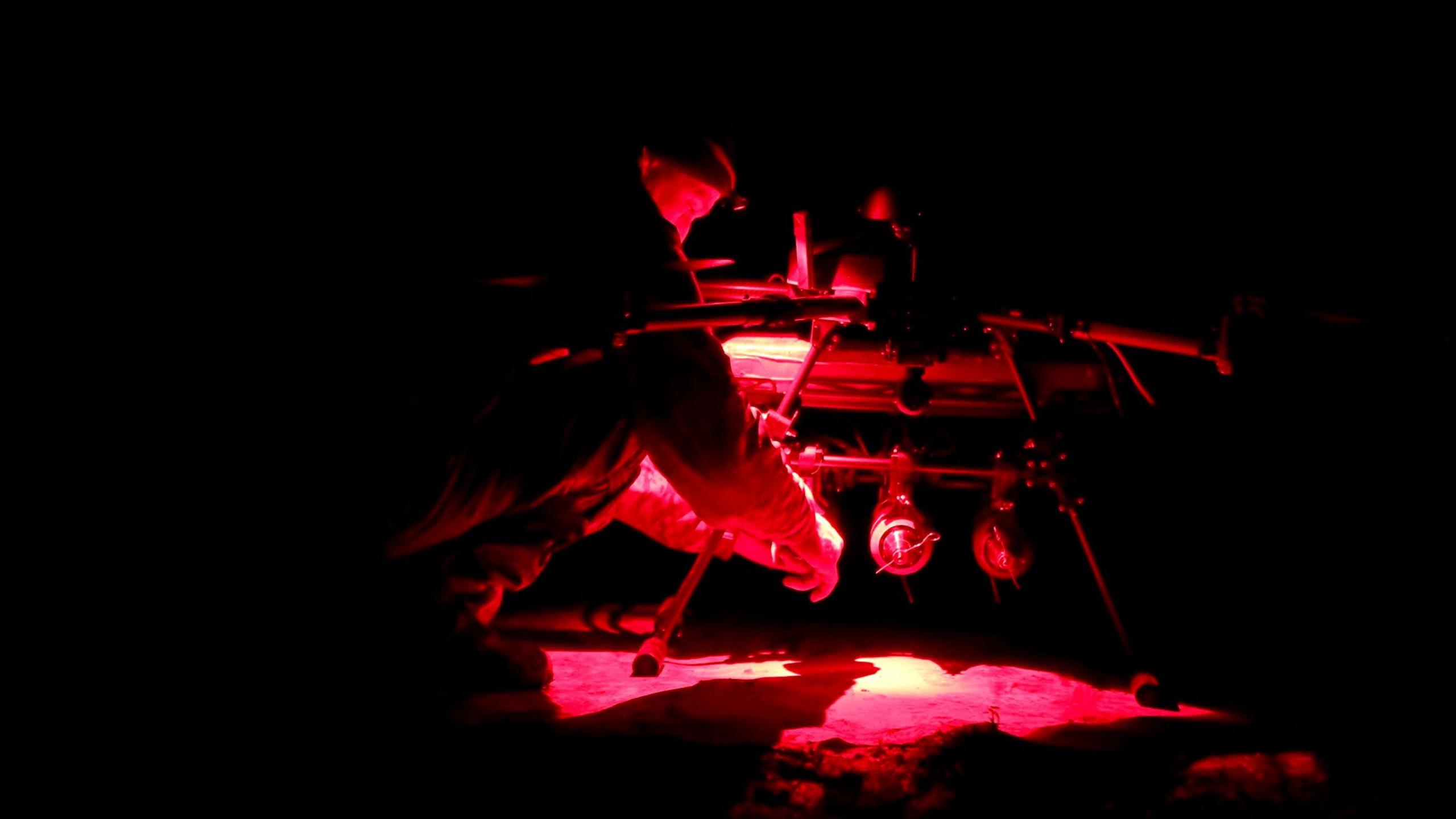
Ukrainian troops send supersized attack drones into combat in the skies as the Russians inch forward
Mykhailo detects a Russian warplane in the skies. Minutes later we hear the distinct thud of three Russian glide bombs. "It's far," he tells us. That turns out to mean two to three kilometres away.
During a lull, I ask Mykhailo if he thinks a peace deal is possible. "Maybe not," he says. "This [Putin] is a completely unstable person, and that's putting it very gently."
"I hope that at some stage the enemy will stop because they tire out, or someone with a sound mind comes to power."
He won't comment on President Trump.
While Mykhailo is a veteran of this war, one of his men is a beginner. Twenty-four-year-old David joined up last September as the Russians neared his hometown. He now spends his time handling explosives – though he would prefer to be at college learning languages.
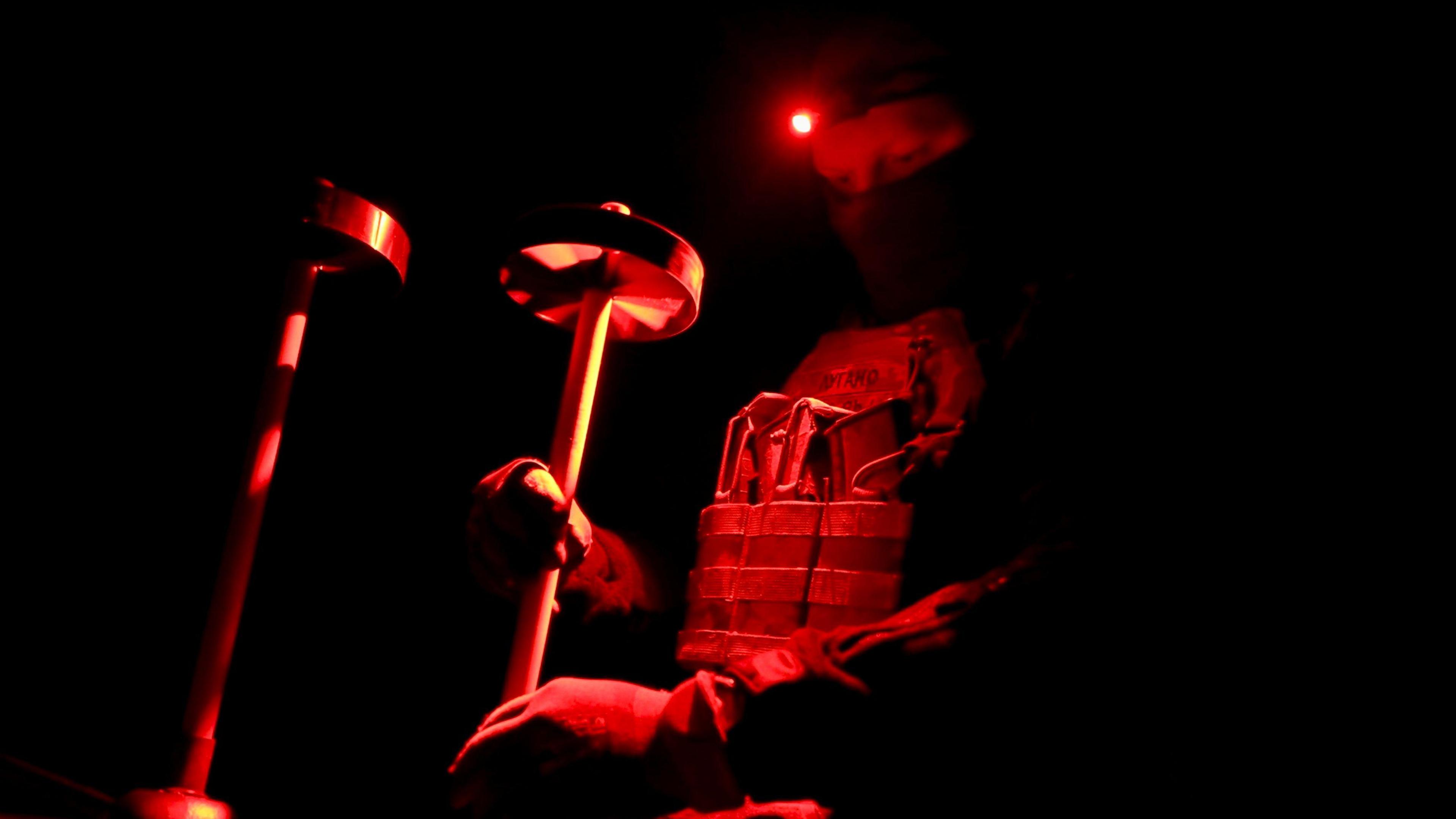
Mykhailo's unit works under torchlight – using red beams not white as these are harder to detect
"No-one knows how long the war will last," he says, "maybe not even the politicians".
"I would like it to end soon so that civilians won't suffer, and people won't die anymore. But considering how things are now on the front line, it won't be soon."
He believes that if the guns are silenced, it will be only a pause, before Moscow comes back for more.
The winds get stronger and the vampire drone crash-lands. It's out of action for now. The unit pack up and leave, as fast as they came. They will be back in action at nightfall, resuming the duels in the sky.
But on the ground the Russians keep inching forward, and the Trump presidency will mean pressure for a deal. And there is one more hard truth here: if it comes it is unlikely to be on Ukraine's terms.
Additional reporting by Wietske Burema, Goktay Koraltan, Anastasiia Levchenko and Volodymyr Lozhko.
Related topics
- Published2 January
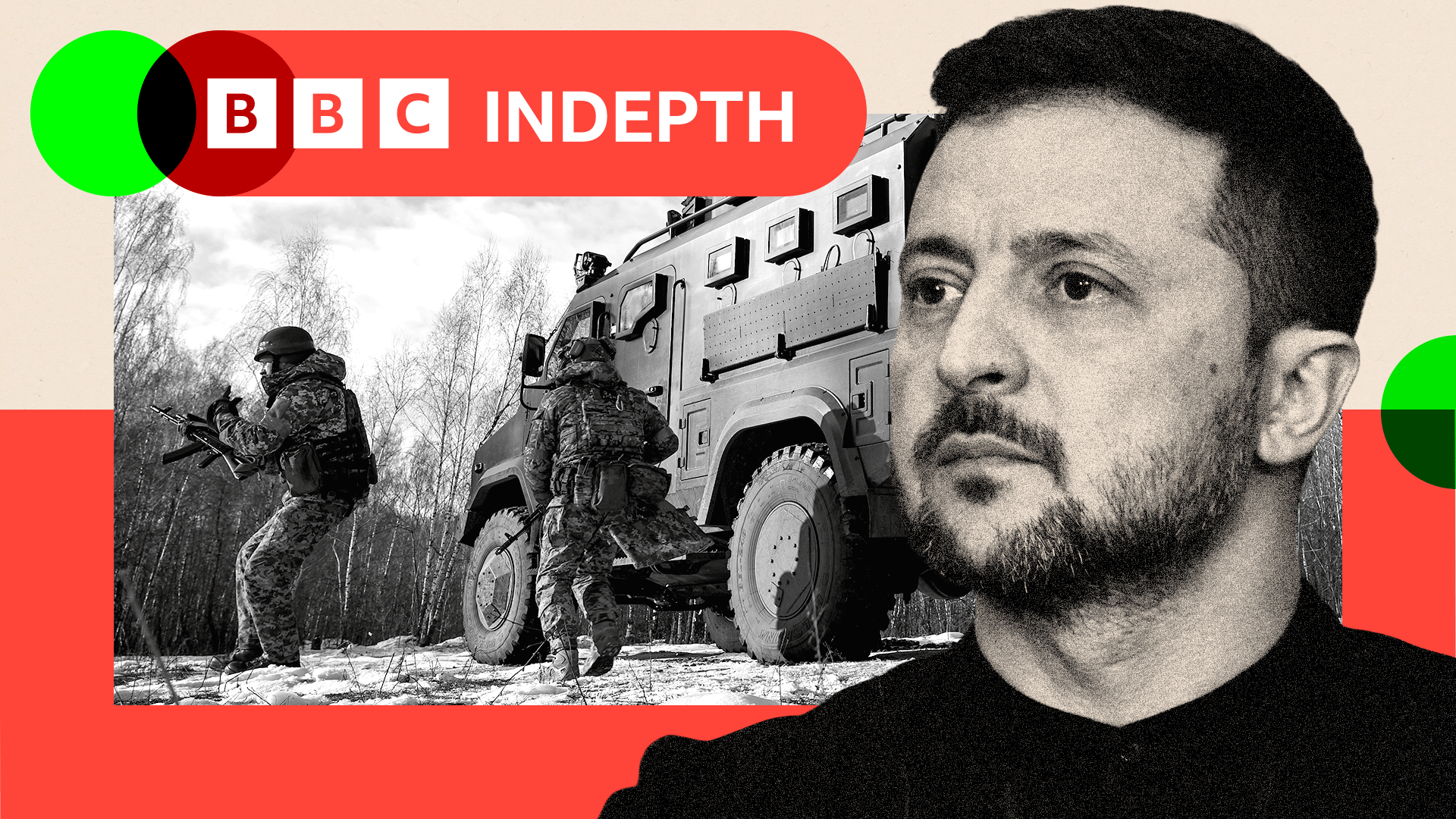
- Published10 January
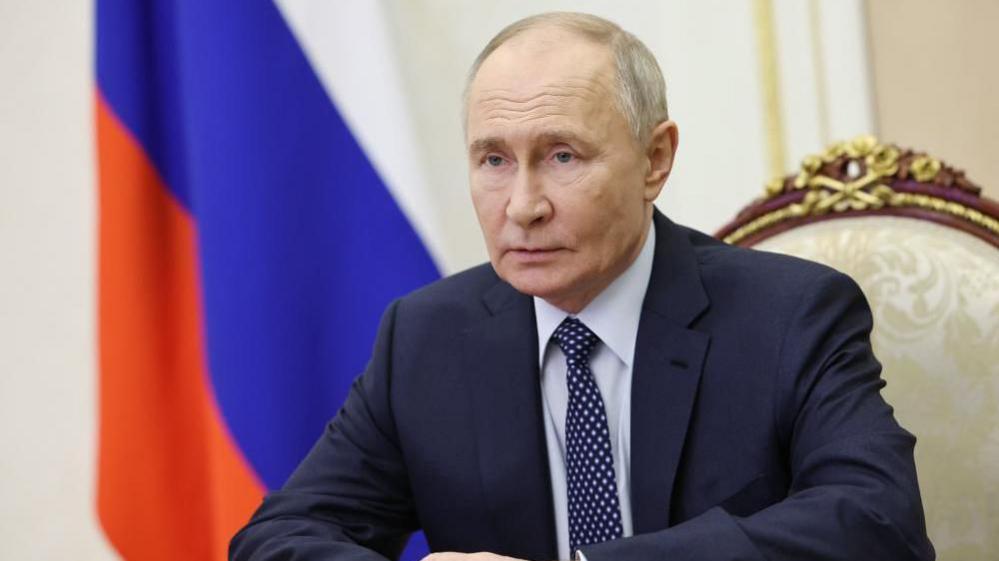
- Published14 January
